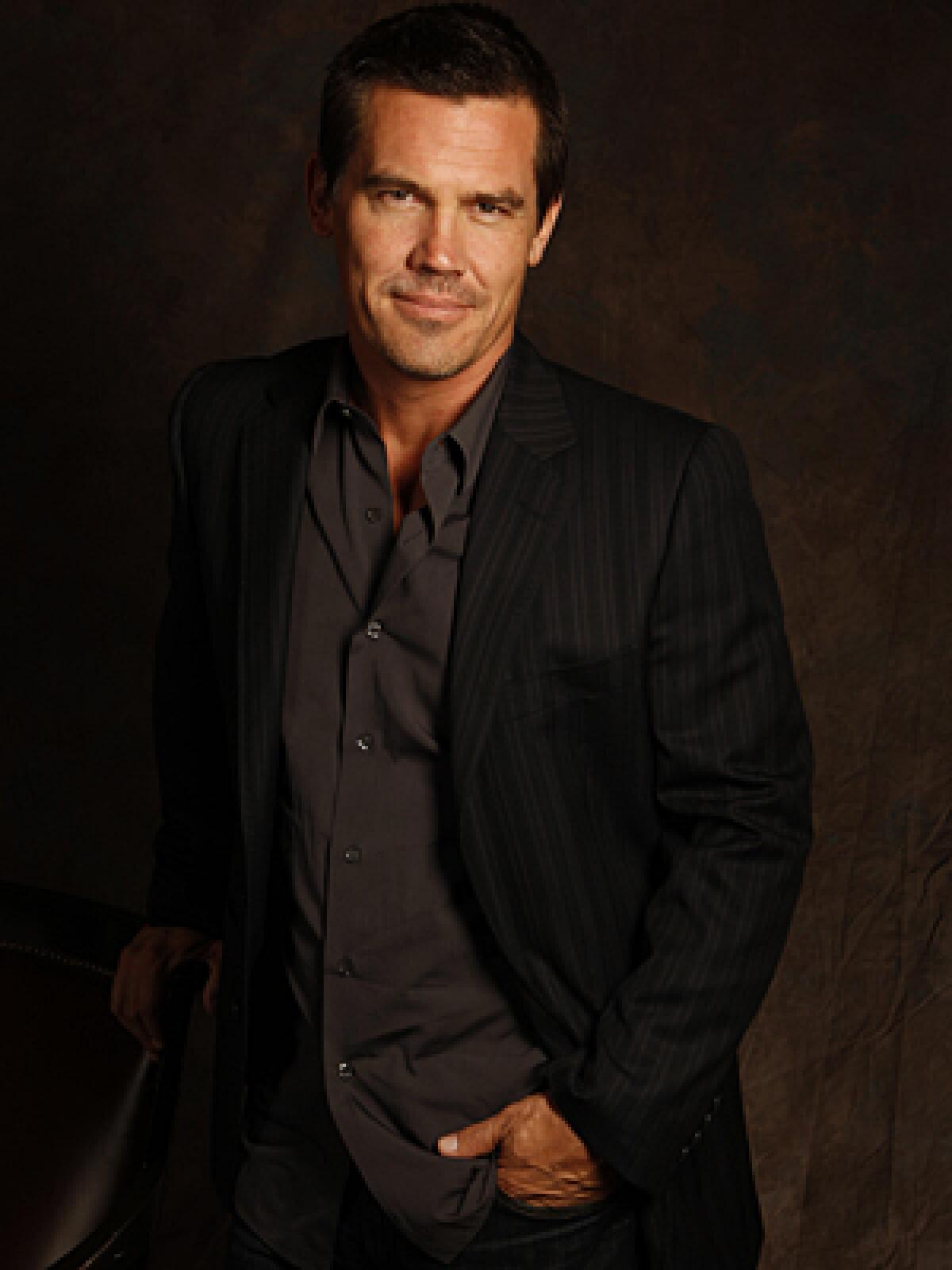Seeing more of Josh Brolin

Who knows how these things happen? Josh Brolin made his film debut in “The Goonies” and subsequently appeared in films for such directors as Woody Allen, David O. Russell, Paul Verhoeven and Guillermo del Toro, well on his way to a respectable but low-key career. Then, within the last few years, giving off a vibe of authentic-Americana masculinity largely missing from the man-boys of the multiplex, he began appearing in films of a markedly higher profile. Last year, Brolin was seen in “In the Valley of Elah,” “American Gangster,” “Grindhouse” and the eventual best picture winner, the Coen brothers’ “No Country for Old Men.” This year he appeared as George W. Bush in Oliver Stone’s controversial “W.,” and in Gus Van Sant’s “Milk” he plays Dan White, the former firefighter, police officer and city supervisor who shot and killed San Francisco Mayor George Moscone and activist and politician Harvey Milk.
In broad, general ways, your roles in “W.” and “Milk” have some things in common: They are both based on real people and they both give an unexpected emotional complexity to characters that might have been portrayed in a more straightforward manner. Did you prepare for the roles in similar ways?
No similarities whatsoever. The only similarity is that there’s actual video and people I could talk to that knew the people, especially with Bush. With Dan White, I found a few people that were friends of his and liked him and were confused about what happened. So there’s the similarity, you can create a foundation that’s all based on fact, and then add whatever you feel like doing beyond that.
With “Milk” there’s more stuff left up to the imagination -- how he felt in certain situations, I don’t know exactly. I heard his confession, which was extremely helpful. I got to hear another side of him, he always had these incredible filters on, this whole formality when talking to reporters and then you hear the tape -- it’s an hour-and-a-half after he shot both people -- and there’s an adolescence that peeks out, almost like a flailing, spoiled little baby.
One of the biggest additions in the film “Milk” from the documentary “The Times of Harvey Milk” is a deeper look at the political dynamic between Dan White and Harvey Milk. As portrayed in “Milk,” once they were both in City Hall, Harvey revealed himself to be a natural politician, while Dan White couldn’t get the hang of it.
We talked about this a little bit. I love the documentary, I was very moved by the documentary, but I thought they painted this guy out as a kind of monster, it’s just black and white. And that’s not interesting to me. I know the story is about Harvey Milk but you can’t take [White] out of the story. It’s an essential character. So, to me, it’s more interesting to humanize him. You have to.
Once you got into the human aspect of this guy it became harder, you actually like the guy, you feel bad for him. I think he was the big fish in the small pond of his district and he just didn’t have the political savvy. It wasn’t him. He was a simple guy who got into a very complex world where he was in absolutely and completely over his head.
A couple of times in “Milk” it is implied that Dan White might have been secretly gay. Did people from the time put forward this idea?
Yes, but it’s all conjecture. Who knows? Maybe it was that, maybe it had nothing to do with being latent. Do I play his latent homosexuality? No, with the exception of that one drunken scene. There were a couple times you’ll see looks that Dan gives Harvey that were kind of indefinable. Is he looking at him to connect? Because he’s desperate? Because he likes him? It’s all possible. It’s hard to pinpoint whether he was a latent homosexual. I don’t know if it matters, ultimately. This is my opinion, I don’t think Dan White killed Harvey because he was gay or because he was jealous that he was out and free. I think he killed him because it was the only tangible thing he had left that he could come by in his mind.
The last couple of years have been really remarkable for your career. What happened?
No idea. There is no reason. You go out, audition, you do your thing and hope you get the role. . . .
People say, “You weren’t doing so hot before and now you’re doing great.” I was doing fine before. I was one of the few people able to make a living off acting. I actually get mad if anybody sees it as some kind of failure. I felt very successful. And I was able to bring up my kids, I was working maybe once or twice a year. It was a perfect scenario. Now my kids are older, and this happened. Ethan Coen came up to me as we were shooting [“No Country”] and he said, “Nobody’s going to see this movie.” And he really thought that.
More to Read
The biggest entertainment stories
Get our big stories about Hollywood, film, television, music, arts, culture and more right in your inbox as soon as they publish.
You may occasionally receive promotional content from the Los Angeles Times.











